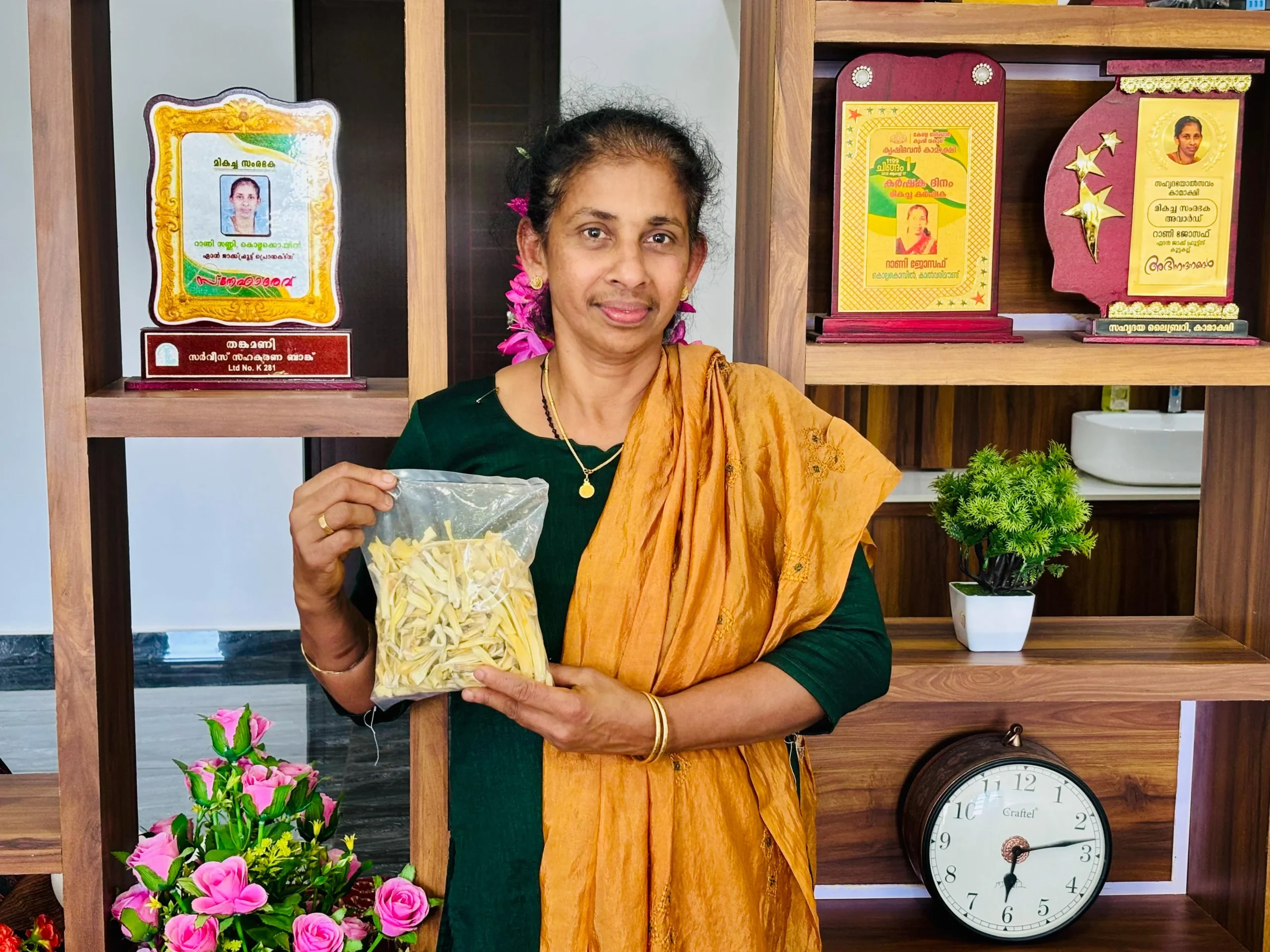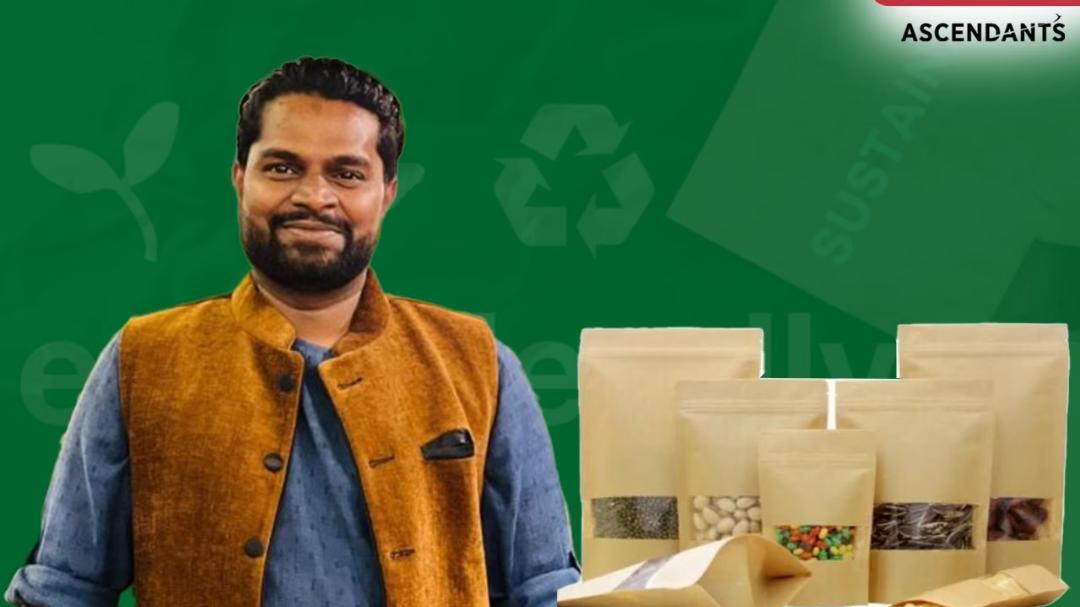Introduction
Kerala jackfruit business is flourishing, thanks to inspiring stories like that of a 57-year-old homemaker who turned her backyard into a profitable venture. In Kerala, often called God’s Own Country for its lush greenery, backwaters, and rich agricultural heritage, she used just 4.5 acres of land to transform the humble jackfruit, a fruit often overlooked or wasted, into a sustainable and thriving business.
This inspiring story is not just about agriculture; it’s about resilience, innovation, and how ordinary people can turn homegrown resources into successful ventures. In this blog, we’ll explore the homemaker’s journey, the business model, challenges, and lessons for aspiring entrepreneurs across India.
Discovering the Potential of Jackfruit
Jackfruit, often called the “poor man’s fruit”, is abundant in Kerala but is rarely commercialized at scale. Traditionally, it was consumed at home, sold in local markets, or sometimes wasted due to lack of storage and processing options.
For this homemaker, the idea struck when she noticed the abundance of jackfruit trees in her backyard. While harvesting the fruit for family use, she realised the potential for:
- Value-added products like jackfruit chips, jams, pickles, and flour
- Eco-friendly packaging for commercial sale
- Local and online markets hungry for organic, homegrown produce
This observation marked the beginning of her journey as a woman entrepreneur in Kerala.
From Homemaker to Entrepreneur: The First Steps
At 57, most people consider retirement or slowing down. But this homemaker chose action over hesitation. Here’s how she began:
- Learning the Business
- She attended workshops on fruit processing and value addition organized by Kerala Agricultural University.
- She studied market trends, learned about packaging, and researched how jackfruit products could appeal to both urban and rural consumers.
- She attended workshops on fruit processing and value addition organized by Kerala Agricultural University.
- Experimenting at Home
- She began small, experimenting in her kitchen with jackfruit chips, pickles, and jams.
- Friends and neighbors were the first taste testers, providing feedback on flavors, shelf life, and packaging.
- She began small, experimenting in her kitchen with jackfruit chips, pickles, and jams.
- Setting Up Infrastructure
- With minimal investment, she converted part of her backyard into a small processing unit.
- She invested in basic equipment: slicers, dehydrators, and eco-friendly packaging materials.
- With minimal investment, she converted part of her backyard into a small processing unit.
Her early approach reflected low-risk, high-learning entrepreneurship, a strategy that many small business aspirants can emulate.

Building the Business Model
Turning jackfruits into a profitable business required a structured model. The homemaker focused on:
- Value Addition: Transforming raw jackfruit into products like:
- Chips (fried and baked)
- Pickles and preserves
- Jackfruit flour (used as a gluten-free alternative)
- Ready-to-cook frozen jackfruit packs
- Chips (fried and baked)
- Target Markets:
- Local grocery stores and organic markets in Kerala
- E-commerce platforms like Amazon and Flipkart
- Urban customers in cities like Kochi, Trivandrum, and Bangalore
- Local grocery stores and organic markets in Kerala
- Pricing Strategy:
She priced products to cover production costs while remaining affordable for customers seeking organic and locally-sourced products. - Marketing & Branding:
- Highlighted the story of a homemaker turning backyard produce into a business
- Focused on the eco-friendly, organic, and handmade angle
- Leveraged social media and WhatsApp groups to reach niche buyers
- Highlighted the story of a homemaker turning backyard produce into a business
Overcoming Challenges
No entrepreneurial journey is smooth, and this Kerala jackfruit business was no exception.
- Seasonal Supply:
Jackfruit trees bear fruit only during certain months. She solved this by drying, freezing, and processing products to ensure year-round supply. - Lack of Capital:
Being a homemaker with no prior business experience, she started small. Later, she accessed government schemes for women entrepreneurs, which helped scale production. - Market Awareness:
Educating customers about jackfruit products was essential. She used storytelling marketing, showcasing health benefits and eco-friendliness. - Competition & Branding:
While other packaged foods dominated the market, her USP was authentic, backyard-grown, and handmade products, which appealed to conscious consumers.
Success Metrics and Growth
Over time, her jackfruit venture grew from home experiments to a profitable business:
- Revenue Growth: Within 2 years, sales exceeded ₹25 lakh annually.
- Employment Generation: She hired 5-10 local women to help with processing, slicing, and packaging.
- Product Expansion: Introduced jackfruit flour, frozen snacks, and ready-to-eat meals.
- Market Recognition: Featured in local news and food blogs, highlighting women’s entrepreneurship in Kerala agriculture.
Her success demonstrates how small-scale backyard agriculture can become a sustainable business model.
The Social and Environmental Impact
Beyond profits, the business created multiple positive impacts:
- Empowering Local Women: By hiring women from the community, she provided financial independence and skill-building opportunities.
- Reducing Food Waste: Jackfruit, often discarded when overripe, was now fully utilized in processed products, minimising waste.
- Promoting Healthy Eating: Her organic, preservative-free products encouraged healthy snacking and alternative flours for gluten-free diets.
- Sustainable Farming Practices: She avoided chemical fertilizers, relying on compost and organic farming methods for her backyard.
Lessons from Her Journey
This story offers valuable lessons for aspiring entrepreneurs:
- Start Small, Scale Gradually – Her journey began with experiments at home, not a full-scale factory.
- Leverage Local Resources – Using backyard jackfruit as the raw material reduced costs and created a unique USP.
- Value Addition is Key – Processing and branding transformed a common fruit into high-value products.
- Community Engagement Matters – Employing local women and creating awareness strengthened both the business and social impact.
- Persistence Over Age – Age was never a barrier; at 57, she started a thriving business proving it’s never too late to become an entrepreneur.
Government Support for Women Entrepreneurs in Kerala
Her growth was also aided by state and central government initiatives, which include:
- Kerala Women’s Economic Empowerment Schemes – Financial assistance and training for female entrepreneurs.
- Startup India Scheme – Provides low-interest loans and mentoring for agripreneurs.
- Kerala Agricultural University Workshops – Hands-on training for value-added agricultural products.
These programs have made it easier for women across Kerala to turn backyard farming into sustainable businesses.
The Future of Her Jackfruit Venture
Looking ahead, the homemaker plans to:
- Expand E-commerce Presence – Selling nationwide and potentially exporting.
- Introduce New Products – Jackfruit-based snacks, bakery items, and packaged ready-to-eat meals.
- Scale Organic Farming Practices – Encourage other women to use eco-friendly methods and start their own ventures.
- Create a Local Brand Movement – Inspire people to buy local, organic, and handmade products from Kerala.
Her story is not just a business model; it’s an inspiration for rural and urban women entrepreneurs alike.
Conclusion
The story of a 57-year-old homemaker in Kerala turning her 4.5-acre backyard into a profitable jackfruit business proves that entrepreneurship has no age limit, and innovation can begin at home.
From tackling waste, creating local employment, to offering healthy snacks, her journey embodies the spirit of resilience, sustainability, and empowerment.
For aspiring entrepreneurs, especially women in rural or semi-urban India, this story is a shining example of how passion, creativity, and determination can transform ordinary resources into extraordinary businesses.
As consumers increasingly value organic and eco-friendly products, ventures like this Kerala jackfruit business are paving the way for a greener, profitable, and socially conscious India.
Sometimes, the biggest opportunities lie in what we overlook even in the humble fruit growing in our backyard.





